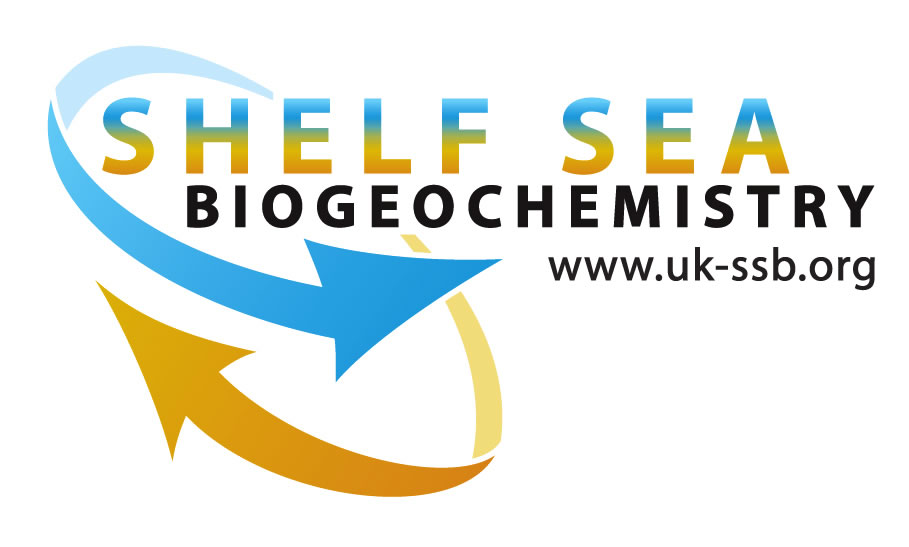'Blue carbon' – How much carbon is stored in UK shelf seas, what influences storage and could it be used in carbon trading?
This research being carried out in this work package addresses the ‘How much carbon is stored in UK shelf seas, what influences storage and could it be used in carbon trading?’
By aiming to:
- Understand spatial and temporal annual variability of marine and coastal carbon storage.
- Investigate decadal to century scale scenarios for carbon exchanges and storage.
- Develop and apply a “Blue carbon” accounting and valuation framework to UK waters.
The contribution of forests in storing carbon is well-known. In contrast, the critical role of the coastal and especially marine environment, i.e. Blue Carbon, has generally been overlooked. This project represents the first comprehensive study of coastal as well as shelf sea carbon storage.
We are looking at the carbon cycles we have some knowledge about various processes transferring carbon from inorganic into organic, and from short lived (i.e. a spring bloom) to long-lived states (i.e. multi-year storage in sediments), but significant gaps remain, and rarely are the different components of the system considered holistically. This programme will attempt to link processes and quantify and derive total budgets for UK shelf-seas.
The processes that affect release include various anthropogenic activities, such as trawling, wind farm construction and nutrient inputs, affect the degree to which carbon is stored. The impact of these will be very different depending on the physical and chemical make-up of the seabed, i.e. muds versus sands, and different habitat types. Management decisions and climate change scenarios influence the processes involved. Models based on better understanding are required to inform these decisions.
Importantly we will link our understanding of biogeochemistry with environmental economics, developing a valuation that considers the marine environment in a similar way to existing terrestrial schemes. We will assess whether current carbon trading incentive mechanisms are relevant to marine carbon trading. If so, we will investigate the scope for the UK to gain carbon credits through the amount of carbon stored within its territorial waters
The project has recently started and is going to receive results as they emerge from a linked ambitious year-long field-based programme of observations and experiments. Current effort is directly at reviewing to the state of knowledge and any gaps. Close links are maintained with the others workpackages of the NERC-Defra Shelf Sea Biogeochemistry programme. It is envisaged that ultimately outputs from the project with be instrumental in synthesising the increased understanding gained through the shelf seas programme and translating them into an economic context.
This work package will therefore support emerging aspects of marine policy, particularly in relation to carbon budgeting and trading with respect to the Climate Change Act of 2008.
More information is available from the Lead Principal investigator is Dr. Keith Weston based at Cefas in Lowestoft (keith.weston@cefas.co.uk)
Participants
This work package is being led by researcher from Cefas, and the School of Environmental Sciences at UEA in collaboration with the University of Essex, Scottish Association for Marine Science, The Carbon Trust, Ocean Innovations, Plymouth Marine Laboratory, National Oceanography Centre and the International Institute for Sustainability (Brazil).
About Cefas
Cefas – the Centre for Environment, Fisheries and Aquaculture Science – is an internationally renowned aquatic scientific research and consultancy centre. We aim to be the prime source of high-quality science used to conserve and enhance the aquatic environment, promote sustainable management of its natural resources, and protect the public from aquatic contaminants. We provide research, advisory, consultancy, monitoring and training services to a large number of clients worldwide. We have a huge range of resources and expertise, with more than 500 staff based primarily at two UK laboratories, our own ocean-going research vessel, and over 100 years of experience.
About UEA’s School of Environmental Sciences
The School of Environmental Sciences at UEA is one of the longest established, largest and most fully developed interdisciplinary institutions of its kind in Europe. The School provides a stimulating, innovative and active research environment for the study of natural and human environments. Our fundamental and policy-relevant research informs the greatest societal challenge of the 21st century to balance human resource needs with the sustainability of our environment. A world-class experience for researchers, postgraduates and undergraduates is provided by internationally-recognised academics, supported by excellent teaching and research facilities based in our collaborative research centres and groups.
